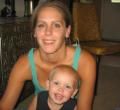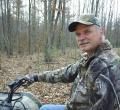Granite Falls High School Alumni
Granite Falls, Washington (WA)
James Jenks Hoover
Granite Falls High School
Class of 1937
→ Join 1335 Alumni from Granite Falls High School that have already claimed their alumni profiles.
→ There are 63 classes, starting with the class of 1937 all the way up to class of 2020.
JAMES JENKS' PROFILE

| First Name | James Jenks |
| Last Name | Hoover |
| Graduation Year | Class of 1937 |
| Gender | Male |
| City | N/A |
| State/Province | WA |
| Country | United States |
| Occupation | Merchant Marine |
| Married | Yes |
| About Me | James Jenks Hoover, 1919 - 2009 Few records have surfaced about the origin of the Hoover side of the family. Father believed Raymond Hoover had three brothers Ted, Gil and Richard, but didn’t know if that was all his siblings. There are family postcards showing grandma Jenks’ family in Mendocine, Indiana, in what could be 1908. They moved to the Puget Sound area then realized land was more expensive than they thought. Hearing that land was cheaper in Missouri, the Jenks moved there. They found cheap land but also discovered that cheap land wouldn’t grow anything, so they pulled up and moved back to Puget Sound. The first place the Jenks farmed was Camano Island. Father (Jim Hoover) was a very young toddler when his grandparents lived there. He remembered visiting the farm and thinking how big the cows were. He also remembered being on the beach when he and his big brother, Richard, almost got caught in a tide when it closed in around them. He credits Richard for saving his life. His grandfather was working at either a lumber or pulp and paper mill in Everett. The mill processed junk wood and ground it down for other uses. One day grandpa Jenks’ sleeve got caught in the mill and took off one of his arms from the elbow down. Father doesn’t remember much about the accident. He thinks they received some kind of settlement from the accident because they then bought land in Granite Falls. While they were able to buy land, they did not live a life of luxury. No electricity meant no radios, and lighting was done by kerosene lantern. No indoor plumbing meant walking to the well every time water was needed, and boiling a pot on the stove to make it hot. No money for fuel meant everything on the farm was run by horse or human power. Grandpa Jenks was able to do a lot of work with just one arm and father said hitching the horses was one thing his grandpa was particularly good at. Hitched horses were used for plowing fields, and for pulling a rope along a track that would raise the hay bales onto the top level of the barn. Father described grandma Jenks as an amazing woman. The farm eventually turned into a dairy farm and money was made selling dairy products. Besides being grandpa’s second arm, grandma Jenks milked the cows, fed all the animals, canned hundreds of jars of food each year, and kept the farm going. Eventually, she would have partial responsibility for raising three grandchildren. Father says he was a vegetarian in his early years but not by choice. They raised chickens but needed them for eggs and there wasn’t money to buy much meat. As a small boy he found he could pick and sell certain herbs to a local merchant. Father’s mother, Estella, was born in Iowa. He thinks maybe in was on the trip from Missouri to Washington, but he wasn’t sure. A copy of his birth certificate states his father, Raymond Douglas Hoover, was born in Ohio. Raymond was 26 and Estella was 27 at time of his birth, and Raymond’s occupation is listed as Switchman. Estella’s marriage to Raymond Hoover ended. She and three children needed to find ways to survive. They lived on the farm for a while, two beds were set up in the parlor and grandma and her daughter Mary slept on one, and father and his brother Richard slept on the other. The current owners let father and I tour the house when we stopped by in the late 1990’s. The parlor, as it was then, couldn’t have been more than 10’ x 10’. Eventually Estella got a job as a bookkeeper in Everett, but she had no way to look after her children so they stayed with the Jenks in Granite Falls. Richard, Jim and Mary moved to the farm at an early age and could only help a little, but they learned fast. At that time roads were few, and no one owned cars anyway. Grandma got up from Everett to see the children when she could. Meanwhile, she was able to help the family more by keeping her job in Everett. In father’s paperwork for that time his mother’s address is listed as 3123 Colby Avenue, Everett, WA. From 1925 to 1933 father attended Granite Grade School. From 1933 to 1935 he attended South Junior High School in Everett. He then attended Everett High School from 1935 to 1936, and eventually Granite Falls High School from 1936 to graduation. When father was very young and living in Granite Falls he was excited to learn he could make money from picking wild herbs and selling them to a local merchant for pennies. His paperwork for application to the Coast Guard shows some of his work references. From September 1936 to May 1937 he worked as a Farm Hand and Milker for Martin Englebretsen in Granite Falls while attending Granite Falls High School. For that work he received room and board and $1.00. From June 1937 to September 1937 he worked as a Milker for Carnation Dairy Farm in Carnation, Washington. For that he earned $50 plus room and board [seems high for monthly, maybe that pay was for the whole season]. According to his references his skills were rated the highest for trustworthiness, general intelligence, and ability. His reason for leaving is listed as ‘school’. Father’s explanation for his good behavior was that it had more to do with the hours he worked. Milking was done in shifts, six hours on and six hours off, 24 hours a day, seven days a week. He said some fellows slipped into town but he found that working after a night in town was too grueling, so he staying with just working and sleeping in his bunk every chance he got. While in high school he was on the basketball team and he credited that to his height of 6’3” more than his ability. He continued to keep in touch with Granite Falls friends, such as Carl Henstrom and Ken Claus for his entire life. On May 17, 1938 father applied for three years as an Apprentice Seaman in the Coast Guard. His pay would be $21.00 a month. One of his references was a science teacher from either Granite Grade School or Granite Falls High School who noted that he was an honor student with an excellent reputation. Another school reference said father was, “slightly above average”. The City Marshall, J.A. Lefeber, wrote a note saying he was liked very well, from a Christian family, and was never in trouble. By 1941 father was working at a shipping locks in Sault Ste. Marie, Michigan as part of the Coast Guard River Patrol. He described to me how he worked in a below freezing hut with little heat in the middle of winter. Even though it was very cold he’d rather be there than on the Eastern Seaboard where American ships were being sunk by German submarines. There was no Navy to protect them because WWII had not yet been declared. His sentiments were reflected in his application for reenlistment to the same post on August 15, 1941. What little protection offered was stretched thin. Before the war was declared the Coast Guard ships needed Navy personnel onboard to fire in defense if necessary. Sometimes there would be five Coast Guard ships protecting 500-ship convoys of freighters and merchant vessels. As a ‘Coastie’, father trained by shooting at targets being towed right behind the breech. At the time, his ship, the INGHAM, had 5” (wide) guns, and his job was Rammer. The lead shot weighing 50 pounds was loaded. As soon as it was loaded father rammed it far enough down so the next guy could lay powder bags about 3” in diameter and 16” long. Then he’d close the breech and pull the trigger. This would set off the primer, which would set off the powder and send out the shell. He was on #2 gun, which was under #1 gun. When the guns went off hair would stand on end and it felt like needles were poking into each pore of his head. There weren’t any earplugs and some guys stuck paper in their ears. He blames his later hearing loss on that. One time both #1 and #2 guns fired at the same time and it was quite a noise. The bridge had called down “Fire when ready!”, but one gun was delayed because of a wave. The bridge called down and asked if both were fired. Because of the delay, and firing at the same time, they weren’t sure. The “goofy” gun captain opened the breech. Father saw that powder sitting on top of that hot breech and thought he was done for. They closed the breech quick and fired. Later photos of the INGHAM showed that more guns were added after that tour. He travelled frequently on the military Liberty Ships. In recent years he spoke many times of his deep respect for them. He continued to be curious about whether certain ones were still floating. All service personnel were in the same war but they didn’t always get along. One evening father took mother on a date in Boston. A Navy sailor kept coming over to the table uninvited. Jim had nothing against the Navy because all missions were dangerous, but the Navy sailor made a mistake of calling him a “shoreside sailor.” Father’s reaction was so quick the sailor didn’t know what hit him. A right fist to the sailor’s head knocked him on the floor. Father picked him up and threw him over his shoulder, unfortunately onto the table where the ladies were sitting. Drinks were spilled and Helen’s friend’s white dress got the worst of it. The fight was over as quickly as it started. While I’m mentioning fights, there was another one later, when Jim and Helen were at The Cave in Vancouver, B.C. A hockey player kept touching mom so father finally let him have it in the chin. That might not normally have flattened the hockey player, but father’s fist was in a cast. The loyalty to the Canadian hockey team is well-known, so the ladies and escort went out the front door, and father slipped out the back door and hid while the angry hockey team went by looking for him. During his Coast Guard career he was a member of an elite rowing team who would be lowered over the side to row out on the Atlantic to perform rescue missions. He remembered one time when they rowed out to the Grand Banks to pick up a fishing boat crew. The sea was crushing their boat into the fishing boat and he doesn’t know how they got the fishing boat crew onboard, but they did. In recent years he laughed when he recalled wondering, if they were the elite, then who would rescue them if they got in trouble. By 1942 father was a Merchant Marine and a member of the Sailor’s Union of the Pacific. His vessel service history shows that he made 66 trips to ports around the world, on almost as many different merchant ships, until his retirement in 1968. Merchant Marines needed to keep sailing because if they weren’t sailing they weren’t getting paid. This history of the Merchant Marines is very interesting. During WWII, out of approximately 5,000 merchant ships, 1,554 were sunk with 9,497 war dead. This was a higher percentge casualty rate than any of the military services. Father was on merchant ships that carried war freight from India, across the Atlantic, without a protective convoy because they weren’t considered military ships. Some of his trips were to the Ivory Coast where they would pick up rubber to be used by the war effort. During a trip to Ceylon his ship rescued American prisoners of war who were floating in the water. Their wrists were tied with wire. It was a moment when he started to believe that war has no good purpose and, while he supported America’s efforts, he no longer had anything good to say about anyone’s war. In the SEATTLE POST-INTELLINGENCER, Tuesday, January 13, 1942 there was an article about a mysterious fire destroying a U.S. army transport vessel, CLEVENDON, somewhere near Alaska, but all aboard were saved. It was a 7,311 combination cargo-passenger ship and was declared a total loss. One paragraph reads “It was the first word of American military operations in Alaska that had been made public since the Navy recently warned shippers that Japanese warships were suspected to be roving in that area.” Father was working on that ship. The entire crew was given shore leave that night and told to stay all night. Father wanted to go back to the ship but no one would let him, by force, and no one would explain why. That night the ship exploded and no explanation was given to the crew. As much as father didn’t want to believe it, he wondered if the explosion was done by the U.S. military to give the public reasons to support the War on Japan declared December 8, 1941. Why would someone be sure no crew was onboard? Again, He supported the war effort but this was one of many experiences that would affect his views. Father received veteran’s benefits because he was in the Coast Guard during the National Emergency. Merchant Marines didn’t receive benefits until recent years. With hopes that whoever reads this will take it upon themself to read the sailors’ history, I’ll just mention a few more personal stories father shared with me. One accident did have him thinking of finding work on land. In the early 60’s he was on a ship five days away from the Philippines. He and O’Donnell were on maintenance and one of their jobs was to hoist each other up and down the mast in the boatswain chair while they took turns coating the stays with tallow. The tallow protected the stays, which were lines that held sails to the mast. The white leaden tallow that father has used in the past would make the stays look very clean and bright. On this trip they were given a different kind – it was black lead (yes, lead), gel-like, and slippery instead of sticky. The application was the same, he dipped his bare hand into the lead mixture and spread it around the circumference of the rope as he was lowered into the chair. They could use a motorized pulley, but decided to do it by hand that day, father doesn’t remember why. Coffee break was called. They went for coffee with this idea of coming back to finish. O’Donnell lowered father down far enough so that he thought he could work his way over to the ladder on the other side and come down that way instead of lowering the chair all the way. Earlier merchant ships had wood rail around the king pole light and a sailor could step on that and then step over to the ladder. But captains burned off the rails in an attempt to keep flammable wood off the deck, so now men had to stretch their legs. Something else was different, too. The black tallow took a while to dry, and until it did, it remained slippery. After coffee break father wondered how he got down so easy, because he could now see quite a distance from the ladder to the boatswain chair. He figured because he got down then he could get back up. Applying the tallow by hand meant that some was going to drip on the deck, and some was now on the sole of his shoes. Father made it up quite a ways before he lost his footing. As he fell his armpit caught on the boom toppendant lift wire, which snapped the bone in his upper arm before he landed on the deck. In the attempt to break his fall he broke both his wrists. Father kept his arm at his side and waited out the next five days. The ship pulled into a port near Manila and he was taken to a Philippine hospital where they painfully lifted his arm out 45 degrees to x-ray the bones. The local physicians were willing to try surgery to bond the bones together again but father went to the Navy hospital for a second opinion. The Navy doctors did not feel equipped to perform the surgery necessary to fuse the bones together. Father was finally put on a commercial flight home during which he spent over 12 hours, including two stopovers in the Pacific and in San Francisco, seated in a cramped airplane with a split bone in his upper arm and two broken wrists. After months in an upper body cast (during which time I remember him tying a lot of flies for something to do) he went back to sea. Again, merchant marines weren’t paid unless they were working. He got on a ship going down the West Coast of South America. That coast is a severe weather passage. Ports are few and the ones that exist are open to ocean weather. Storms and swells did heavy damage to rope and wire lines, even if the ship was tied at the dock. Father discovered he was the only seaman onboard who could splice wire. He quickly began giving lessons to the other seamen on the art of wire splicing. Beside the benefit of only having to splice wire, he found the exercise to be therapeutic for his wrists. The muscles strengthened quickly and he soon got back full use of his arms and wrists. He stayed home for a while, got a real estate license and worked as an agent. However, he was soon back out to sea because the racial and class prejudice in the business of buying and selling homes was too much for him to deal with. On one of his last trips his ship was anchored in Hong Kong harbor. Some sailors went to shore on leave. Father decided to go back to the ship earlier than the rest, but it was already dark. He hailed a harbor taxi, which was one of many small cabined dorys that ran sailors back and forth. The crew was no more suspicious looking than any other, but he started to get a bad feeling when they started to talk among themselves in Chinese and stare at him. The boat slowed down and one of the men was slowly working his way around to the backside of father. At that point father realized they were going to rob him and toss him overboard. There were rumors of missing sailors already circulating and he realized he made a mistake travelling by himself. His survival instincts kicked in and he immediately put his hand inside his heavy shirt, stared at them and said “I’ve got a gun and I’ll shoot”. Although he didn’t have a gun, and didn’t know if they understood him, he hoped they wouldn’t call his bluff. The crew apparently changed their mind and continued on to his ship. The next morning the crew rescued another crew member who was tossed in and had been hanging onto the anchor chain most of the night. There were more men who weren’t found. In closing I’ll mention how my parents met. Father was on leave in Boston, MA, and Helen O’Connor spotted him from across the dance hall. That began their friendship. They got together when he was in port, and he visited her family in Weymouth, Massachusetts. The war kept them at a distance. Eventually mother joined the war effort, partly because her family needed the money, and enlisted in the WAAC, and eventually the WAC. She participated in the Asiatic Pacific Campaign from August 1943 to November 1945 as a Signal Corp Operator and jeep driver in New Guinea. Towards the end of the war father was on a merchant ship delivering war supplies to New Guinea and he was excited about the idea of visiting Helen. Sadly for both of them, and for the war effort, a storm kept the ship from docking. They still kept in touch and married in 1946. Mom kept the household together, and gave both Mike and Patricia a fun and exciting childhood, all while working full time. Their backgrounds were similar in a lot of ways. They both worked hard, which might have come from necessity, and from growing up poor during depression times, but they both found reasons to smile. Father continued to be outspoken about conditions on the merchant ships. He wrote to Governor Dan Evans of Washington about walking through toxic liquid while swabbing upper decks wet with nuclear waste leaking from barrels. As asbestos dangers became known he joined a law suit as a witness to the fact that many of the upper bunks were just one foot away from asbestos pipes. He continued to support groups who felt that wealth was made by the sweat of many, and should be shared enough so that all could make a decent living. He was a politically a Progressive Populist and enjoyed the writings of Molly Ivins, Jim Hightower, and others who weren’t afraid to stand up for what they felt was the right. He later married Pin Hoover and lived in Lynnwood, WA. His days were filled with the enjoyment of his organic garden. In closing, although I mention sad and dangerous events in father’s life, he was a very happy person with a cheerful outlook on life. These notes are ones that he would have wanted me to share. He was not a religious man. He made choices that he was comfortable with, and he felt he did his best every day. He loved a good joke and singing PG rated sailor songs with his Coast Guard brother, Richard, and loved being anywhere with his sister, Mary. He liked John Phillip Sousa music because it was upbeat. His door was always open. His enjoyment of people was only dimmed by his hearing loss in later years. If you caught him weeding he would be glad to talk to you if you weeded beside him, and you’d leave with a big bag of beau...(read more) |

Class of 1937 Alumni and Other Nearby Classes

Don Haas
Class of 1977

Kyle Drube
Class of 2003

Nick Walden
Class of 1999

Peter Kirchgessner
Class of 1964

Margie Abbott
Class of 1963

Catherine Wilson
Class of 1968

Erika Schwendtke
Class of 1983

David A. Briggs
Class of 1981

Darren Squires
Class of 1983

Teresa-terry Short-wallace
Class of 1975

Jennifer Wilbur
Class of 2000

Eugene Engebretsen
Class of 1966

John Parnell
Class of 1989

Ray Hanna
Class of 2004

Joshua Spencer
Class of 1992

Carolyn Bond
Class of 1960

Bob Bilbruck
Class of 1992

Joshua Tindol
Class of 1999

Christy Spencer
Class of 1996

Clarence Champ
Class of 1973

Nissa Powell
Class of 2004

Deborah Studstill
Class of 1990

Jake Fuller
Class of 2019

Gary Mcgillivray
Class of 1974
